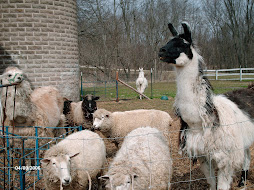Lynn Hodnett
Ms. Peifer
10IB Hr. 5
December 9, 2008
"Yet the prince of the rings was too proud/ to line up with a large army/ against the sky-plague." (Heaney 2345). These lines show the characteristic that men are expected to prove that they are the strongest and don't need any assistance from anyone else. Another value shown in Beowulf is that the king was expected to protect his people from any dangers, even if it means that he has to sacrifice himself to do so. Obviously, the Dane culture impresses that the leader does what is best for his people rather than for himself. Also, the value of loyalty is shown when the young man Wiglaf sees Beowulf in danger and comes to his rescue. "When he saw his lord/ tormented by the heat of the scalding helmet,/ he remembered the bountiful gifts bestowed on him,/... He could not hold back" (2604). Well, there is another interpretation of the value shown in these lines. Other than loyalty, Wiglaf was also keeping his promise. He remembered that Beowulf gave him great gifts and so, in turn, he must give something back to Beowulf.
The last section of Beowulf is phrased quite differently than from the previous sections. It diminishes the height of Beowulf's hero pedestal. Instead of being constantly characterized as this great, invincible, perfect hero, Beowulf is shown as more of a normal man (even if he's a king) with no super powers. One example is that Beowulf is more human than half-god is that he fears God, like any other Christian: "the wise man thought he must have thwarted/ ancient ordinance of the eternal Lord,/ broken his commandment." (2329). This quote gives the very human flaw of having fear. In the other sections, Beowulf doesn't show any emotion at all, including when his men are being eaten by Grendel or when he has to face Grendel and Grendel's mother. "to have to give ground like that and go/ unwillingly to inhabit another home/ in a place beyond; so every man must yield/ the leasehold of his days." (2587). The talk of Beowulf dying also has the same effect in humanizing him, making him seem less like the hero and more of a has-been celebrity.
Beowulf's death would be considered honorable in his time because the Dane men prized themselves on being terrific warriors. The best way to die is to die fighting for one's people and one's king, and this is how they could attain 'invincibility'. To be remembered for one's strength, bravery, and triumph in battle through stories and songs was the only way to become everlasting in everybody's memories. Beowulf obviously achieved this because people still read this story and remember his tale of bravery and victory over the evil Grendel and Grendel's mother.
Tuesday, December 9, 2008
Saturday, December 6, 2008
Beowulf LRJ #2
Lynn Hodnett
Ms. Peifer
10IB Hr. 5
December 4, 2008
One of the values featured in Beowulf is pride in ones' own achievments, as shown in this quote: "the hero displayed/ high up near the roof: the whole of Grendel's/ shoulder and arm" (Heaney 833). It's a sick kind of trophy that shows off how much stronger and more powerful Beowulf is compared to Grendel. The Danes obviously impressed the characteristic of strength in their men: "Endure your troubles to-day. Bear up/ and be the man I expect you to be." (1395). Beowulf's very existence exaggerates this quality. However, strength isn't really encouraged in women because of Grendel's mother: "But now his mother/ had sallied forth on a savage journey,/ grief-racked and ravenous, desperate for revenge." (1276). This part of the story also casts revenge in a bad light, implying that if one goes out to seek revenge, the plan will backfire. Since Beowulf is a hero and has quite a few super-human qualities, there is bound to be at least a couple unrealistic actions taking place. One of these actions is when Beowulf rips off Grendel's arm: "Clear proof of this/ could be seen in the hand the hero displayed/ high up near the roof: the whole of Grendel's/ shoulder and arm, his awesome grasp." (832) Nobody is ever going to rip someone else's arm and shoulder off with thier bare hands. Even if they did, they would most likely be sent to jail and instantly put into therapy for anger management problems. Another extodinary task Beowulf performed was when he went down to Grendel's lair: "he dived into the heaving/ depths of the lake. It was the best part of a day/ before he could see the solid bottom." (1494). It is generally known that humans cannot breathe underwater without help from diving equipment and so can't be underwater for 'the best part of a day' without drowning. Beowulf contains several wonderfully decriptive lines. However, most of them refer to battle, fighting or some kind of weapon. One of the best ones is this: "But he soon found/ his battle-torch extinguished: the shining blade/ refused to bite." (1522). Not entirely sure what a battle-torch is, but the personification of Beowulf's sword really gives a good image of how the weapon was useless against Grendel's mother. Another quote that was chosen as a favorite also describes a sword: "sharp-honed, wave-sheened wonder blade" (1490). These descriptive words just make the sword almost as magical and super as Beowulf himself. "Meanwhile; the sword/ began to wilt into glory icicles/ to slather and thaw." (1605). This last line has terrific diction because it uses 'slather'. That word just makes one hear the blood seeping down the steel blade of the sword and see it stained deep red with Grendel's mothers' blood. It's sickening, but great imagery.
Ms. Peifer
10IB Hr. 5
December 4, 2008
One of the values featured in Beowulf is pride in ones' own achievments, as shown in this quote: "the hero displayed/ high up near the roof: the whole of Grendel's/ shoulder and arm" (Heaney 833). It's a sick kind of trophy that shows off how much stronger and more powerful Beowulf is compared to Grendel. The Danes obviously impressed the characteristic of strength in their men: "Endure your troubles to-day. Bear up/ and be the man I expect you to be." (1395). Beowulf's very existence exaggerates this quality. However, strength isn't really encouraged in women because of Grendel's mother: "But now his mother/ had sallied forth on a savage journey,/ grief-racked and ravenous, desperate for revenge." (1276). This part of the story also casts revenge in a bad light, implying that if one goes out to seek revenge, the plan will backfire. Since Beowulf is a hero and has quite a few super-human qualities, there is bound to be at least a couple unrealistic actions taking place. One of these actions is when Beowulf rips off Grendel's arm: "Clear proof of this/ could be seen in the hand the hero displayed/ high up near the roof: the whole of Grendel's/ shoulder and arm, his awesome grasp." (832) Nobody is ever going to rip someone else's arm and shoulder off with thier bare hands. Even if they did, they would most likely be sent to jail and instantly put into therapy for anger management problems. Another extodinary task Beowulf performed was when he went down to Grendel's lair: "he dived into the heaving/ depths of the lake. It was the best part of a day/ before he could see the solid bottom." (1494). It is generally known that humans cannot breathe underwater without help from diving equipment and so can't be underwater for 'the best part of a day' without drowning. Beowulf contains several wonderfully decriptive lines. However, most of them refer to battle, fighting or some kind of weapon. One of the best ones is this: "But he soon found/ his battle-torch extinguished: the shining blade/ refused to bite." (1522). Not entirely sure what a battle-torch is, but the personification of Beowulf's sword really gives a good image of how the weapon was useless against Grendel's mother. Another quote that was chosen as a favorite also describes a sword: "sharp-honed, wave-sheened wonder blade" (1490). These descriptive words just make the sword almost as magical and super as Beowulf himself. "Meanwhile; the sword/ began to wilt into glory icicles/ to slather and thaw." (1605). This last line has terrific diction because it uses 'slather'. That word just makes one hear the blood seeping down the steel blade of the sword and see it stained deep red with Grendel's mothers' blood. It's sickening, but great imagery.
Subscribe to:
Comments (Atom)


